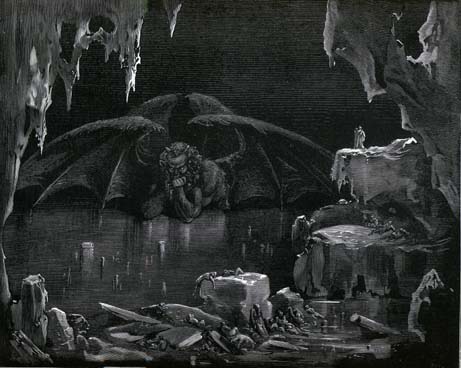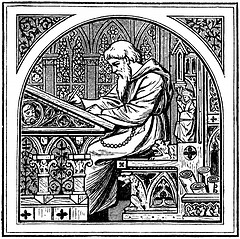
How hard, when those who do not wish
To lend–that’s lose–their books,
Are snared by anglers–folks that fish
With literary hooks;
Who call and take some favorite tome,
But never read it through;
They thus complete their sett at home,
By making one of you.
I, of my Spenser quite bereft,
Last winter sore was shaken;
Of Lamb I’ve but a quarter left,
Nor could I save my Bacon.
They picked my Locke, to me far more
Than Bramah’s patent worth;
And now my losses I deplore,
Without a Home on earth.
Even Glover’s works I cannot put
My frozen hands upon;
Though ever since I lost my Foote,
My Bunyan has been gone.
My life is wasting fast away;
I suffer from these shocks;
And though I’ve fixed a lock on Gray,
There’s gray upon my locks.
They still have made me slight returns,
And thus my grief divide;
For oh! they’ve cured me of my Burns,
And eased my Akenside.
But all I think I shall not say,
Nor let my anger burn;
For as they have not found me Gay,
They have not left me Sterne.
“Sir Walter Scott said that some of his friends were bad accountants, but excellent book-keepers.”
— Charles Carroll Bombaugh, Gleanings for the Curious From the Harvest-Fields of Literature, 1890






